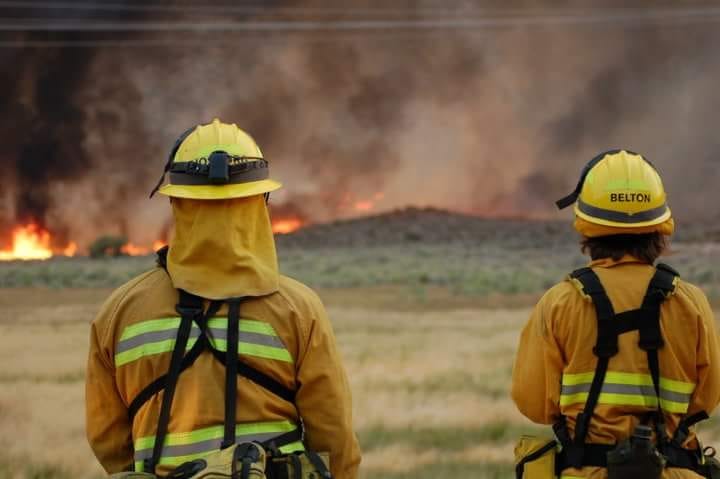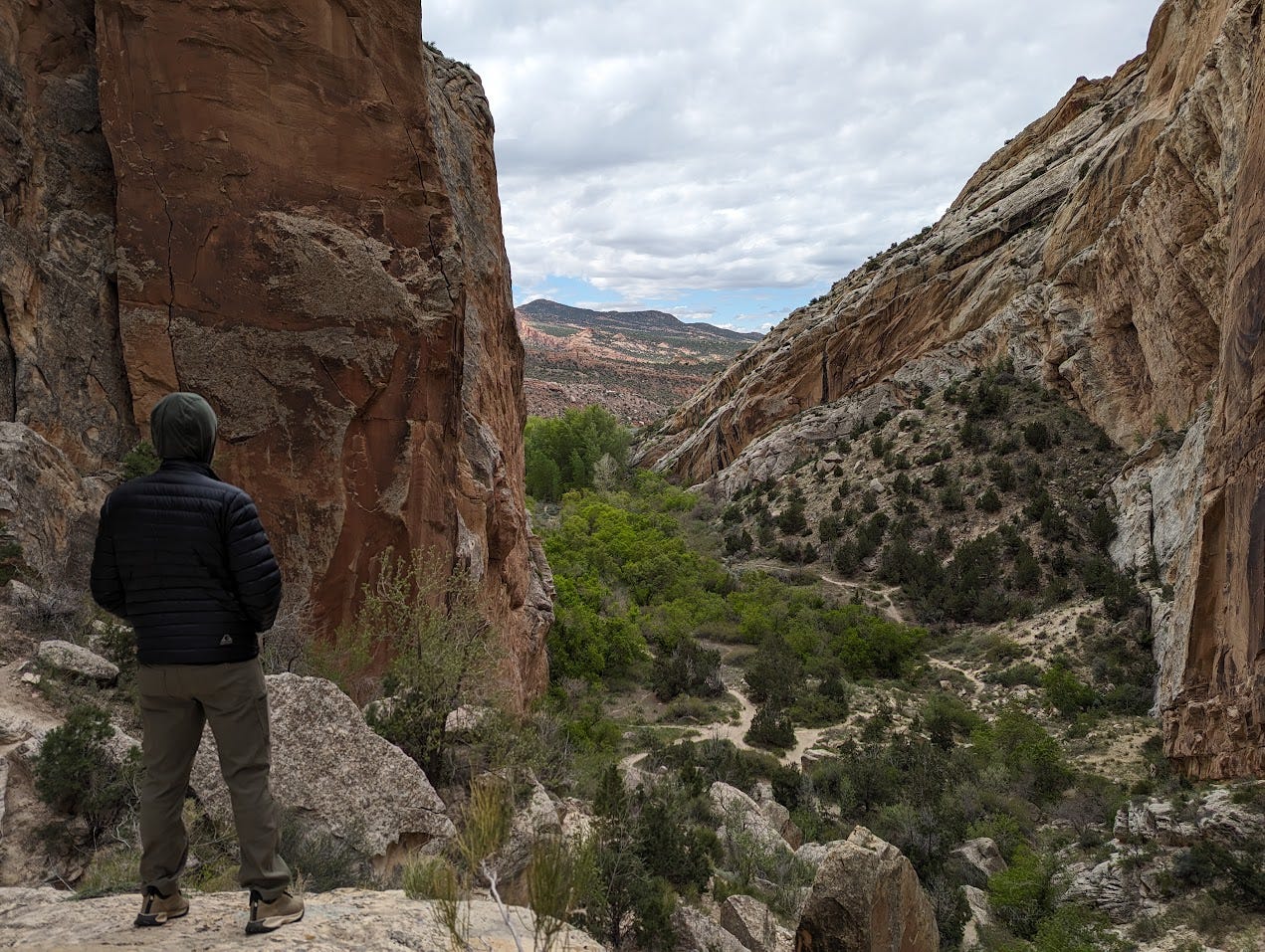Twelve years ago I stood in my office trying desperately not to cry while on the phone with my work comp claims adjuster. I stood there - sitting was too painful - trying not to sob, trying not to let my anger show, trying not to let my seething frustration seep out between clenched teeth, phone clenched in my fist.
All this just because I wanted a physical therapy appointment to help with a massive flare-up. Just approval to go to PT. That’s it. But that was not possible. I was told I would need a referral from my surgeon.
Okay, cool, I’ll call his office right now.
It can’t be over the phone, he needs to evaluate you first.
Ok, well, my surgeon is a busy guy, it usually takes WEEKS to get into see him, and then WEEKS more for any kind of referral to get approved, and then WEEKS to set up the referred/approved appointment. So for this flare-up I’m having RIGHT NOW, I can maybe go to PT in 6-8 weeks?
Yes.
Well, that’s just unacceptable. It makes no sense. I just want PT. Please. I haven’t slept for two weeks for the pain. I’m losing my grip on reality. I need help with this flare-up. I can’t manage it on my own.
If you’re really in that much pain, go to the ER.
Frustrated, agonized sobs held back. Standing there, in my office at fire department headquarters, trying not to lose my shit. Trying to seem reasonable. ‘A good patient’. I definitely couldn’t come across as too emotional, unhinged, weak. I couldn’t be the angry patient. Not as motivated to get better as those in charge of my care. Difficult. Challenging. Antagonistic. Rude. Demanding.

But I was at my wits end. Trying, for the umpteenth time, to prove my pain. That it was real. That I was struggling and suffering and desperate. That I needed some kind of care because I was in dire straights at the moment because I wasn’t sleeping because I was in so much pain and I didn’t know what to do about it and the pain was all-consuming, all I thought about, all I could focus on.
Because I was scared and worried and lost and not myself and trying my damnedest to appear strong, capable, together, good, and I just couldn’t do it any more.
Help. Please.
The answer was still no.
If you’re really in that much pain, go to the ER.
It’s been twelve years and just typing those words my heart rate is up, my chest is tight. It’s been twelve years and it still hurts. It’s still upsetting. It still sucks.
This claims adjustor told me, a firefighter paramedic who used to rail against people using the emergency room for non-emergencies, who just a short time before this call wholly believed people with chronic conditions were better handled elsewhere (with a wave of the arms in the general direction of elsewhere) and not the ER, to go to the ER if I was really in that much pain.
And now, living with chronic pain, having a flare-up that was not an emergency - I’d been living with this pain for over two years at this point! - I’m told by the person in charge of my care to go to the ER.
It was one of those rock bottom kinda moments. Not only from a pain perspective, although this was certainly one of my lower points, but because I realized the system responsible for my healthcare was never going to help me.
I was alone.
Why am I sharing this story now?
Fast forward twelve years and I’m still having to prove myself, just in different rooms, on different calls. And it’s not just me having to prove my worth, it’s my patient partner/advocate/person with lived experience friends, too (me and my friends who do this work have no idea what to call ourselves - any ideas? Seriously, we need better terms than the ones we’ve got!).
Now, rather than having to prove our pain is real, that we are human beings deserving of care, we have to prove that we belong in the rooms we are invited into (sometimes reluctantly) as a ‘patient partner’.
In these rooms (not all of them, mind you, but enough of them to still rankle me) I can find myself yet again having to stifle frustration, anger, tears. I have to modulate my responses so I don’t seem too emotional, subjective, unprofessional. So I am not the angry patient. I have to prove that I am smart enough, that I am exceptional, that I have equipoise, unlike all those other angry patients.
But you know what? I am angry. Why else would I be here? You don’t become an advocate or activist if things are copecetic, you know?
And even though it’s twelve years later, I still hear similar stories from people living with pain. People are still having to prove their pain, are still doubted, discredited, dismissed and denied care, compassion, respect. They still aren’t taken seriously. This shit ain’t right! Someone in the room needs to be upset about it!
And when I say things aren’t copectic, it’s not just the people with pain I’m talking about. Some of my friends and colleagues in healthcare and academia are also overstretched and burning out. They also don’t feel supported or validated or taken seriously, or don’t feel they can bring their full selves to these rooms for fear of judgment, stigma, being labeled difficult or antagonistic or ‘not right for this’, whatever ‘this’ is.

These systems kinda suck for most of us.
So, yeah, maybe I am the angry patient. And damn right I’m emotional! I’m human! And pain sucks! And the healthcare system response to pain really sucks sometimes! Especially pain that doesn’t fit into neat little biomedical boxes. Let’s be honest, folks. The way we treat and research chronic pain could be a whole lot better. If it was great, if no change was needed, we wouldn’t be in the predicament we’re in.
Change is necessary, though, and the necessary change is URGENT in the worlds of pain, healthcare, research, academia. We can’t keep quiet about it. Silence has never led to meaningful change and I’m tired of preserving other people’s comfort and peace when they’ve never been all that interested in our comfort, our peace. I don’t want to be the palatable patient partner who doesn’t speak up for fear of offending somebody.
I’m no longer just ‘happy to be here’, happy to be invited, happy to have a seat even though I’m just supposed to sit there and be silent and give a thumbs up to decisions already made. Or sit there and be silent as I’m patronized and pitied (I’d almost rather be a token than be there as the ‘poor patient’ that is pitied and looked down upon). I’m no longer happy to go along to get along, which I did for too long.
So I speak up a lot more these days, and it’s uncomfortable. And I know it makes other folks uncomfortable, and that makes me scared to speak up because I don’t want to fuck it all up. I don’t want to give the people who think I shouldn’t be there in the first place a reason to say: ‘see, that’s why we shouldn’t involve patients/consumers/people with lived experience of pain’. They’re too angry. They don’t understand academia. They’re too emotional. They’re too subjective. They have an agenda.
<Big sigh>
So I get nervous and anxious and sweaty and shaky and my voice trembles and my legs bounce and my heart races and I want to throw up and I say what I want to say, have to say, anyway.
Why else am I in the room?
The palatable patient (or patient partner)
There is still always that worry, though, that by not being the ‘palatable patient partner’ I’ll somehow ruin things. That’s a lot of hubris, ain’t it? Like I can topple this movement by being real and maybe pissing some people off. And maybe everyone actually loves that I’m there, speaking truth to power, and I’m just worried for no reason 😏.
Let’s face it. The people who don’t want me there to begin with, or who have brought me in because they feel sorry for my lot, aren’t going to be swayed by my speaking up, nor by my silence. So why keep silent on their behalf?
It can be uncomfortable to talk about hard things, though, I get it. It makes me uncomfortable, too! It’s hard to be the one to bring up hard things. Like this whole angry patient business. But can we talk about it?
Angry patient is a label we get when we’re seeking care for often debilitating and isolating pain and facing barrier after barrier to adequate information, care support. Facing being discredited, disbelieved, and dismissed because we don’t fit neatly into some biomedical box. When we’re not fixed or fixable, when we don’t get better like we should, we’re referred to as difficult, challenging, heart sink. We’re judged harshly, stigmatized, accused of malingering and seeking ‘secondary gains’ (that’s a whole other post for another day). We’re abandoned, told there’s nothing more that can be done.
Yet some of us still manage to find our way through it all. Often outside the biomedical system, but also within it. Then, years later, when we share our experiences and insights to try to make things better for all of us, when we advocate for change in healthcare and academic spaces, we’re referred to as angry patients yet again.
<big sigh>
In the spaces we now find ourselves in, there is fear and worry about involving us because of that supposed anger. (There’s also a related fear that we will somehow take over, as though we have the power and resources to do so.)
So we have to fight, yet again, for legitimacy. For belief, for respect, for our humanity. Fight, yet again, to prove our worth. We contort ourselves to fit into palatable packages. To not seem too emotional. Too subjective. Too opinionated. Too angry. We try to fit our pained bodies into the mold of academia.
It’s exhausting. And it hurts.

Bring on the discomfort!
So, if we are a bunch of angry patients, why not get curious about why we’re so damn angry? Wouldn’t that be a better, more scientific, more rigourous approach? What would it take to get the folks to explore what has led to this huge disconnect between the science and systems designed to understand and treat pain on the one side, and the lived experiences of ongoing pain and seeking care on the other?
How much could we gain by bringing science and lived experience together to paint a more authentic, accurate, accessible, and realistic picture of pain?1
Is it just easier to label us as angry and dismiss us? To bar us from the rooms where decisions are made about us, without us, than it is to sit with us and learn with and alongside us? Couldn’t the latter lead to a better way forward for all of us?
Is it just easier not to give voice to the injustice and inequity in the current systems, because if those things are seen and heard, we’d have to do something? Is it because that would be really uncomfortable? And hard?
I get it. I do. It is uncomfortable. And hard. But maintaining the status quo ain’t exactly easy. We’re all already doing hard work!
Getting uncomfortable and changing shit
And anyway, being comfortable has never led to meaningful change, has it? So let’s get uncomfortable and change some shit! We can do it. We can. Especially if we do it together. Cuz you know what makes being uncomfortable easier? You know what makes being bolder easier these days? What makes me speak up despite the sweaty barfiness of it all? What makes it all less exhausting?
Being in community with folks like you all.
Whew, does that make it easier, let me tell you. It is so much easier to do this hard work in community with folks who are aligned with this mission of equitably involving people with pain in the work of pain. Folks who are aligned with this mission of including diverse perspectives, ways of knowing, and people in the work of pain. Folks who are aligned with this mission of equity and justice when it comes to pain research and care.
None of us can do it alone. In community we can do so much. We can support, uplift, embolden, encourage, validate, respect, and LOVE one another as we do this hard work.
Yea, I said it - LOVE! It’s okay to do emotions! We need more love! More compassion! More community! More humanity!
Being in community with all you badasses
I am so so grateful to have found community in this role I’ve found myself in. (Seriously folks, help us come up with a better term for those of us who have found ourselves in these roles! You know, the folks with lived experience of pain who are bringing that to the work, in addition to the rest of our damn selves. Patient partner isn’t right. I also don’t like PWLE - person with lived experience. Consumer definitely ain’t right. WHAT ARE WE!?!?!).
I am so grateful for this amazing community of researchers, academics, clinicians, educators, scientific directors, health professionals, advocates, journal editors, peer reviewers, carers, and people with lived and living experiences of pain. So many people who are sharing power, putting money, support, and resources where their values are, making decisions with us and alongside us, instead of for or about us.
It can be terrifying when you’re the only ‘patient partner’ in the room. You’re always aware of who you are and how you’re different from everyone else. It can be nerve wracking to speak up. It’s so much friggin’ easier to do when we know we’re not alone. When we have a community, and they have us.
Having this community means we are never a lone voice in a room. Even when we are a lone voice in a given room, or think we are, knowing we have people who have our backs makes it easier to speak up, speak out. And you never know, in speaking up, someone in that room may stand with us and lighten the load we’re carrying. It’s happened to me more times than I can count, often coming from unexpected corners. It’s friggin awesome. It gives me hope.

Thank you for not making me do this alone.
I started with a rant but want to end with a thank you. Thank you to all of you who make up this community. Together, we can keep talking about hard things and keep taking on hard things and keep working through hard things. Together, we can get uncomfortable and make some meaningful change.
There are millions of people out there who are still struggling to find the right resources, information, care, support. Who are still lost in the darkness, trying to find their way. A darkness caused not by their pain so much as caused by the inadequate, and too often harmful, institutional, structural, and systemic responses to their pain. Systems and structures we are all a part of, and that, together, we can change.
The work is urgent. Necessary. Important. Worth it. It’s also hard, exhausting, challenging, and draining, so take care of yourself, and each other, in the process.
Thanks so much for being here. I appreciate you.
For some more reading on bringing together science and lived experience, I recommend ‘Structured output methods and environmental issues: perspectives on co-created bottom-up and ‘sideways’ science’, it’s open access!
Also, I’ve recently started reading The Blind Spot: Why Science Cannot Ignore Human Experience. It’s slow going for me, but super interesting.





Nice piece Jo
I sometime get flash backs to my back pain days when I was struggling and trying to make sense of what was happening and what was to become of me.
Healthcare professionals then had never heard of back pain self management and the whole system was geared up to either give me pain meds or send me on the carousel of healthcare.
Starting a back pain support group was to be my get out of jail card, but didn't know that at the time.
One speaker a clinical psychologist was going to get me back on track and get me on a pain management programme and you know what happened after that.
Why am I still doing what I do after 30yrs? Why are you and Keith, our brother do still what you do? I think it is been our destiny to be there for others, who have had or having problem with healthcare and showing/signposting them to another way of managing persistent pain.
Keep up the excellent work you do my friend and keep writing these excellent pieces
Pete
Hard not to get emotional reading that as it takes me right back into the battlegrounds and reflection on where I've come from on my pain journey.
I can't imagine how difficult it must have been to reflect and write on that difficult part of yours, there is strength there many of us still seek, and by sharing this you share your strength with us. Keep fighting the good fight and thank you!